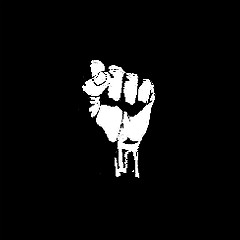
Last week Amazon deleted copies of George Orwell’s Nineteen Eighty-Four and Animal Farm from some of their customers’ Kindles.
This has happened before. In June, Amazon deleted some Ayn Rand titles. And it’s happened with Harry Potter titles as well. Amazon’s defense is pretty believable; they said the copies were pirated and that they were only acting to protect intellectual property. But as Farhad Manjoo at Slate says, “The Orwell incident was too rich with irony to escape criticism….”
Then Manjoo gets to the thorny problem:
The worst thing about this story isn’t Amazon’s conduct; it’s the company’s technical capabilities. Now we know that Amazon can delete anything it wants from your electronic reader. That’s an awesome power, and Amazon’s justification in this instance is beside the point. As our media libraries get converted to 1’s and 0’s, we are at risk of losing what we take for granted today: full ownership of our book and music and movie collections. . . . Like a lot of others, I’ve predicted the Kindle is the future of publishing. Now we know what the future of book banning looks like, too.
The rapid ascension of digital publishing and consumption has given the entire movement a juggernaut feeling. That’s not fundamentally a problem. But anything that moves fast tends to get established before it can be understood or its virtues critiqued. Not that people aren’t trying.
Public intellectual and novelist Stephen Carter recently wrote about the value of physical books as opposed to digital formats. Part of his argument (read the whole thing here) is that books are vital to democracy and other intellectual pursuits because of their permanence.
His article was published before the Orwell incident, but I find his point intriguing in light of it because if there’s any fact that stands out in the midst of the Orwell deletion, it’s not related to copyright or intellectual property; it’s the lack of permanence. A remote actor can delete your library. If he were reaching into your study or living room and raking books off the shelf, we would be as stunned as we were angry.
And it points out another thing: A new and disturbing level of vulernability related to centralized “tethered” control as opposed to decentralized ownership.











